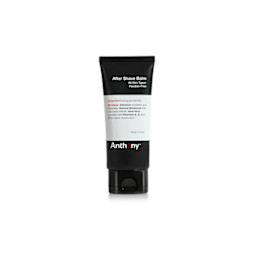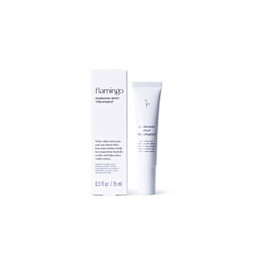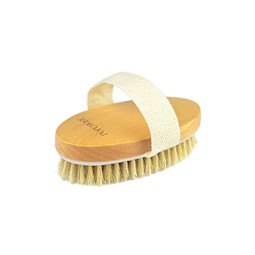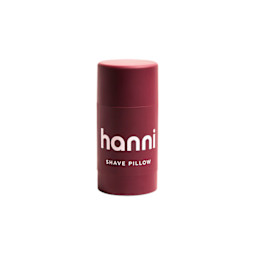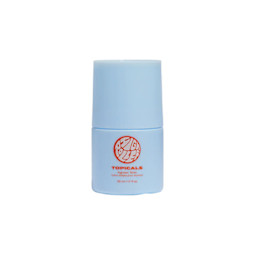The 10 Best Ingrown Hair Treatments For Legs, Pubic Area, Face & More

Pick view of the best ingrown hair treatments
If you've ever had an ingrown hair, you know the drill: It's red, uncomfortable, lasts a few days too long, and might even leave behind a dark spot. These pesky, pimple-like bumps happen to everyone. Here's the good news: There are things you can do to both prevent future ingrowns from forming and treat those that are already present.
We consulted the experts to learn a bit more about what these bumps are, what to look for in treatment products, some of the best options, and how to avoid getting more in the days to come. It's time to kick-start your smooth, bump-free shave experience. Let's get into it.
mbg's picks for best ingrown hair treatments 2023:
Pro
- May help treat active ingrowns
Con
- Not the best for sensitive skin
Considerations:
VeganCruelty-freeHelps brighten dark spotsSafe for pubic areaSafe for bodyIngredient highlights:
Willow bark extractAloeWitch HazelThis serum plays two roles: It's A+ for preventing ingrown hairs but also offers a gentle treatment for them once they've arrived. It contains two different exfoliators: Willow bark extract (a natural form of salicylic acid) and lactic acid, which will help brighten the skin as well. Witch hazel works to tighten pores and reduce redness, while aloe vera soothes irritated skin and offers a much-needed boost of hydration for skin that's just been shaved or waxed.
Pro
- Physical & chemical exfoliant
Con
- Pricey
Considerations:
VeganCruelty-freeHelps brighten dark spotsHealthy aging benefitsSafe for bodyIngredient highlights:
Willow bark extractGlycolic acidLactic acidAs we mentioned, scrubs are great for preventing ingrown hairs. While you wouldn't want to take a harsh scrub to the face, a gentle alternative can offer a physical exfoliation that can help prevent ingrown hairs. This one by SkinFix includes glycolic and lactic acid as well, serving as a chemical exfoliant too. This is a great option for the body and may be great for those with keratosis pilaris (commonly called KP or chicken skin) as well.
Pro
- Safe for use on the face
Con
- Contains fragrance for those who avoid it
Considerations:
Cruelty-freeSafe for sensitive skinHelps brighten dark spotsHealthy aging benefitsSafe for faceIngredient highlights:
AloeAllantoinVitamin AVitamin CVitamin EWhen it comes to facial exfoliation, you should be particularly careful to not use any exfoliants that are extra-strong, as the moisture barrier on your face could become compromised. For those who shave and worry about ingrown hairs on the face, this aftershave is a great follow-up. It's formulated with natural botanical oils including rosemary oil (which has been proven to increase hair growth). Vitamin A works to exfoliate the skin, vitamin C helps brighten the complexion, and vitamin E works alongside allantoin to smooth and hydrate. The result? A clean, hydrated finish, sans ingrown hairs and inflammation.
Pro
- Affordable
Con
- Small amount
Considerations:
VeganCruelty-freeSafe for sensitive skinHelps brighten dark spotsSafe for pubic areaSafe for bodyIngredient highlights:
Willow bark extractLactic acidBisabololThis one is just as affordable as it is effective. The formula contains willow bark extract and lactic acid to exfoliate the skin and ease redness. Bisabolol helps reduce irritation, which is perfect for ingrown spots caused by shaving (aka razor bumps). You can use this treatment as spot prevention as well to get ahead of any frequently troublesome areas. It's a small tube, but that's because you only need a tiny amount to see a significant improvement in the visible appearance of your ingrown.
Pro
- Safe for the entire body
Con
- Doesn't treat active ingrowns
Considerations:
Safe for bodyIngredient highlights:
Not appliciableDry brushing has tons of benefits for the skin. Not only does it increase circulation, but it also offers a gentle exfoliation for the body. As you know, this is key to preventing ingrown hairs. If your skin is sensitive to chemical exfoliants like AHAs and BHAs, a dry brush is a perfect alternative. You can use this on the entire body, bikini area included (avoid the face, though). Simply run the brush over your skin before stepping in the shower, and be sure not to press too hard—the bristles do the work for you.
Best for pubic area: Lady Suite Glow Refiner Exfoliating Spray
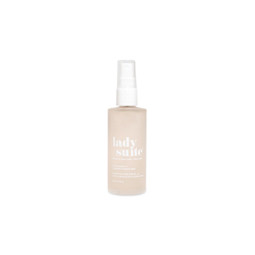
Pro
- pH friendly
- Contains organic ingredients
Con
- Takes longer to dry
Considerations:
VeganCruelty-freeSafe for sensitive skinHelps brighten dark spotsSafe for pubic areaSafe for bodyIngredient highlights:
AloeLactic acidNiacinamidePanthenolAllantoinHyaluronic acidWhen it comes to the bikini line, you'll want to avoid anything that could interrupt your pH. Although it shouldn't ever get close enough to reach your pH-sensitive skin, it's better to be safe than sorry. This one from Lady Suite is perfect for this. This spray can be used weekly to combat ingrown hairs, razor bumps, and even post-inflammatory hyperpigmentation that may have come from past ingrown hairs. The formula is gentle yet effective and pH-friendly.
Pro
- Doubles as shaving cream and body moisturizer
Con
- Contains fragrance, for those sensitive to scent
Considerations:
VeganCruelty-freeSafe for sensitive skinHealthy aging benefitsSafe for bodyIngredient highlights:
Adaptogenic mushroomsCactus waterGlycerinThis one is phenomenal for shave prep because it hydrates the skin beautifully. In the shower, apply this stick formula liberally until you feel the soft serum-like texture on your skin. There won't be a big lather, just a smooth feeling. Then go ahead and shave as you normally would. You can use this as a moisturizer for sensitive areas as well. While this is great for preventing ingrown areas while you shave, you should double up with another option to exfoliate before the shave begins for best results.
Pro
- Helps with uneven tone and texture
Con
- Shouldn't be used on pubic area
Considerations:
VeganCruelty-freeHelps brighten dark spotsSafe for bodyIngredient highlights:
Lactic acidCentella asiaticaMeet our holy-grail body product. You can apply this exfoliating serum to the whole body (aside from the pubic area) and follow up with a high-quality moisturizer to keep your moisture barrier balanced. Tested by mbg's own Hannah Frye, it's best used about two days before shaving, so you can be prepped and ready for your next hair removal session. Just avoid putting this serum on right after shaving, as it's unnecessary and may result in some painful tingling (as all exfoliating products will post-shave). Bonus: It's also a great product to use the day before you self tan.
Pro
- Helps treat curly hair ingrowns
Cons
- Not the best for hypersensitive skin
Considerations:
VeganCruelty-freeHelps brighten dark spotsSafe for pubic areaSafe for bodyIngredient highlights:
Glycolic acidSalicylic acidZinc PCAThe armpits are sensitive, so you don't want to scrub that area too often. This roller stick contains salicylic and glycolic acid to penetrate pores and target bump-causing buildup—so you can skip the physical exfoliation. Plus, zinc PCA minimizes the appearance of skin irritation for an added boost of ingrown-fighting power. The reviews for this product are glowing with praise, especially for curly hair-induced ingrowns and easing skin texture. This formula can also be used as a dark spot treatment to help lighten any previous ingrown hair spots.
Expert pick: First Aid Beauty Ingrown Hair Pads With BHA & AHA

Pro
- Derm-approved
Con
- Not the most sustainable option
Considerations:
VeganCruelty-freeHelps brighten dark spotsSafe for pubic areaHealthy aging benefitsSafe for bodyIngredient highlights:
Glycolic acidSalicylic acidWitch Hazel"AHA/BHA exfoliating pads from First Aid Beauty will do the trick," Marcus said. This is a dermatologist-backed tip, so if you're looking for something with ideal ingredients, this is it. These alcohol-free pads gently exfoliate the skin, while aloe vera soothes and replenishes hydration. These are free of drying alcohols and fragrance, so they're great for the bikini line. These pads were designed to be used 24 hours after hair removal on the face or the body.
Best splurge: Dr. Dennis Gross Alpha Beta Exfoliating Body Treatment Peel

Pros
- Very potent exfoliation
- Not only will this help reduce ingrown hairs, but will target dark spots, crepiness, KP, body acne, and texture concerns
Cons
- Can be irritating to sensitive areas or skin types
- Not vegan, if you adhere to strict vegan lifestyle
- Not sustainable packaging
Considerations:
Cruelty-freeHelps brighten dark spotsHealthy aging benefitsIngredient highlights:
Glycolic acidSalicylic acidBakuchiolSqualaneAloeThe cult-favorite peel pads from Dr. Dennis Gross make their way to the full body. These use larger towelettes and slightly stronger active concentrations to account for the skin on the body. The active ingredients are glycolic acid, lactic acid, salicylic acid, and bakuchiol—yep, the gangs all here. But to help soothe skin it also contains aloe and squalane.
Best tweezer: Tweezerman G.E.A.R Ingrown Hair / Splintertweeze Stainless Steel Tweezer

Pros
- Makes extracting ingrown hairs much easier and efficient
Cons
- Not as good as slanted tweezers for shaping brows or other facial hair
- Has sharp ends, so be sure to be careful when using it
Considerations:
Not applicableIngredient highlights:
Not appliciableWhen part of the ingrown hair is visible, it is safe to remove it at home. (Read: Don’t pop under-the-skin ingrowns.) It’s important to use the right tools, like this option specifically designed to remove ingrown hairs and splitters! The extra fine prongs make it more exacting—so you can better extract and remove the hairs.
Pros
- Turmeric is one of the most beloved skin care ingredients around
- Buffered with aloe and botanical oils
Cons
- Pricey
- Can make a mess in the shower
Considerations:
VeganCruelty-freeHelps brighten dark spotsHealthy aging benefitsIngredient highlights:
AloeTurmericRosehip seedPapaya enzymeAs we’ve noted, scrubs can be a great tool to prevent ingrown hairs from forming in the first place. But for anyone dealing with stubborn dark marks from past ingrown hairs (called post-inflammatory hyperpigmentation), you’ll want a brightening exfoliant. This body scrub is made with turmeric, an anti-inflammatory super antioxidant that helps even tone. The manual exfoliant is rosehip seed, which will gently polish the top layer of skin. This option’s for the body, but the brand also has a version for the face, which is actually the original formula that this one’s based off of: Kora Organics Turmeric BHA Pore & Brightening Treatment Mask.
Pros
- Very effective at treating KP as well
Cons
- If you have sensitive or very dry skin, just stick to one type of exfoliation method — two will likely be overkill
Considerations:
Cruelty-freeHelps brighten dark spotsHealthy aging benefitsSafe for bodyIngredient highlights:
Glycolic acidSalicylic acidGluconolactone (PHA)Bamboo powderBlack pepper essential oilAmino acidsLactic acidFor some high-powered exfoliation, turn to this scrub and serum combo. The duo are formulated to work together or separately. Start with the polish, which uses a combo of bamboo powder, lactic acid, squalane, and black pepper essential oil to slough off dull skin and boost circulation. Then follow up with the serum, which blends together AHAs, BHA, and PHA—as well as amino acids and kelp extract.
Best retinol body lotion: Versed Press Restart Retinol Body Lotion

Pros
- Helps with signs of aging, such as crepiness, fine lines, and wrinkles
Cons
- May cause photosensitivity – avoid use during the day time
Considerations:
VeganCruelty-freeHelps brighten dark spotsHealthy aging benefitsSafe for bodyIngredient highlights:
SqualaneRetinolCoco butterRetinol can improve skin cell renewal, encourage cell turnover, brighten dark spots, and unclog pores—all good things for ingrown hair prevention. This option uses retinol alongside squalane and coco butter, which help protect the skin barrier and support skin hydration.
Pros
- They also have plain hydrocolloid patches in case you don’t want salicylic acid
Cons
- Pricey for pimple patches
Considerations:
VeganCruelty-freeSafe for sensitive skinSafe for faceIngredient highlights:
Salicylic acidPimple patches make excellent solutions for ingrown hairs on the face. Just place one of the star-shaped hydrocolloid patches over the ingrown, and let the patch do its thing. This one is infused with salicylic acid for a boost of exfoliation. Bonus: It’ll keep you from picking at painful or irritated ingrowns, which will only cause further damage.
How we picked:
Ingredients
These products contain only gentle naturally derived or safe synthetic ingredients that have been proven to improve skin health. This way, you can treat your ingrowns without worry.
Testing
We’ve tested some of these products ourselves so we can give you authentic recommendations. When this wasn’t possible we looked to certified customer reviews and expert suggestions.
Variety
We know ingrowns pop up in many different places, so we selected a few options for each area of the body. In addition, we selected picks that work wonders for curly-hair-induced ingrown hairs with authenticated user reviews.
From the pros
We asked dermatologists and cosmetic chemists what to look for in the best ingrown treatments. We included some of their recommendations and used their expertise as a guideline for selecting these options.
What are ingrown hairs?
While the name in itself is fairly self-explanatory, here's a technical explanation: "Ingrown hairs are caused by hairs that get stuck under the top layer of the skin," board-certified dermatologist at Schweiger Dermatology Jeremy Fenton, M.D., told mbg.
Not all ingrown hairs are the same, though. "Sometimes it is due to having curly hair that grows back into the skin, which is a condition called pseudofolliculitis barbae. More traditionally, it is referring to hairs that are trying to get to the surface but never make it through and continue growing under the skin," Fenton explained.
The latter can cause redness and inflammation, which may look like a pimple on the surface. While some ingrown hairs may be small and pass on their own, others can result in significant irritation and inflammation, which may lead to scarring, especially for those with darker skin tones.
"Darker skin tones can easily develop dark spots and pigmentation due to the inflammation caused by ingrown hairs. So care should be taken not to aggravate the area too much," clean cosmetic chemist Krupa Koestline told mbg.
As we said, prevention is everything when it comes to ingrown hairs. Board-certified dermatologist Rebecca Marcus, M.D., led the way on our search: "Gentle exfoliation can be helpful in preventing ingrown hairs," she said. To gentle exfoliation, we go.
What causes ingrown hairs?
Ingrowns are a very common skin problem that affect folks of all ages, genders, skin types, and hair types. No matter who you are, there's a very good chance you've had an ingrown before. However, there are certain circumstances that make them more common.
Improper hair removal & skin care
"Things that increase the risk of ingrown hairs include waxing, plucking, and shaving close to the skin," Fenton said. This is exacerbated when you're removing hair from skin that hasn't been exfoliated.
While you don't need to exfoliate every single day, you should try to slough off dead skin cells before taking a razor, waxing strip, or tweezers to your skin. This way, the hair can come out with ease and you can shave closer without worry.
"Also, keeping the area moisturized and lubricated before shaving can help prevent these," Koestline added. Using products like shaving cream or gel can be extremely helpful.
In addition to prepping the skin, properly lubricating it, and following up with moisturizer, you should use a high-quality razor and change it frequently. Using dull razors can also contribute to ingrown hairs and an overall less effective shave.
Having curly or coarse hair
Curly hair tends to develop ingrowns more. This is because the hair more likely bends back into the skin, making getting trapped a whole lot easier. So if you have curly hair (on any part of your body) and can't seem to figure out what gives, just know that it's due to the hair type. We say this because, once you realize that certain hair types just do this, you can better be proactive instead of reactive
In addition, folks tend to get them more or are areas where the hair is coarser, be that the beard, bikini region, nape of the neck, or so one. This is because coarser hair can get trapped under the skin easier, as well as create more irritation (therefore, this causes a deeper, more inflamed ingrown that you're more likely to notice).
Wearing tight or irritating fabrics
Ingrown hairs can also be the result of repeated wear on a particular area. If you find that a particular area develops them more, inspect whether the area is going through repeated irritation like chafing from clothing, masks, sweaty workout clothes, tight underwear, or so on.
How to prevent ingrown hairs
You know what they say: Prevention is the best treatment. Many of the above products will not only treat ingrowns, but will help keep them at bay. But it’s also important to remember that certain habits can make ingrown hairs more likely! So here’s everything you need about avoiding ingrowns in the first place.
- Exfoliate regularly and prior to shaving
- Use clean, sharp razors — and swap the razor out every 5-7 shaves
- Prep the skin with warm water to soften the skin
- When shaving don’t press on the skin too hard
- Shave in the direction of hair growth
- Moisturize daily with soothing body lotions
- Look into professional hair removal treatments, such as laser hair removal (check out our favorite at-home tools here)
FAQ about ingrown hairs
Why do I get so many ingrown hairs?
Ingrown hairs are most commonly caused by improper hair removal techniques, such as using an old razor, not exfoliating prior to, hydrating after, and pressing too hard on the skin when you shave. Folks with curly hair tend to get more ingrowns, as the hair is more likely to grow back into the skin. Finally, you may experience more ingrowns in areas where the hair is coarser or there’s regular friction.
Is witch hazel good for ingrown hairs?
Witch hazel has astringent properties. Cleaning the area with a teeny bit of astringent can help tighten pores, reduce irritation, and help reduce the occurrence of ingrowns in the future. Soak a cotton swab with witch hazel (which has natural astringent properties) or diluted tea tree oil (which is antiseptic and antibacterial), and place it over the affected area.
Glycolic acid for ingrown hairs?
Chemical exfoliants, like glycolic acid, is an excellent ingredient to help treat ingrown hairs. They can help slough away dead skin cells, unclog pores, and improve cell renewal. Other useful chemical exfoliants are salicylic acid, lactic acid, and mandelic acid.
The takeaway
Ingrown hairs can be painful and uncomfortable, especially in sensitive areas. Luckily, there are a bunch of clean treatments and preventive products on the market to help you avoid these pesky spots. It's best practice to have a shaving tool kit as well, including a high-quality razor (here are some of our favorites). Like we said before, once an ingrown hair causes significant discomfort, you should consult a dermatologist to treat the spot to prevent scarring or complications.



